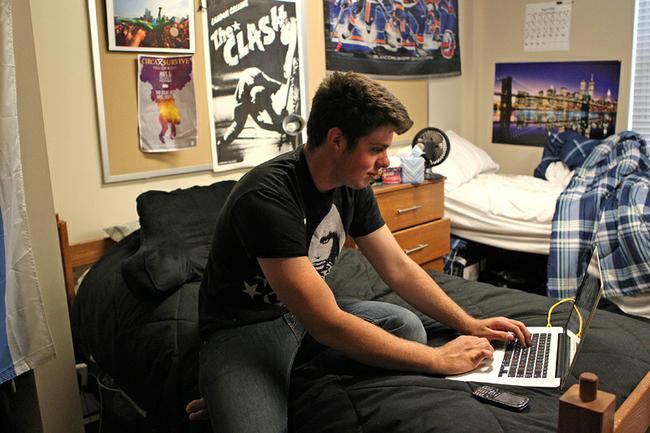
As many times as mom might have said “Don’t let the bedbugs bite,” it’s still a possibility at MU.
In the past year, the Department of Residential Life has reported seven instances of bedbug infestation. All incidents took place on university-owned apartments housing primarily students who are married, have families and are in graduate and professional schools. Six instances were reported at Tara apartments and one was reported at Manor House.
Bedbugs are small insects that feed on blood and cause maladies such as rashes and bite marks.
“They most frequently travel in anything soft,” Residential Life Director Frankie Minor said. “Bedding is most common, but they’re not confined to that.”
Minor said leaving unwanted furniture outside residences at the end of the school year increases the risk of infestation. The items are picked up by passer-by and bedbugs, if present, are transported from one house to another.
The pests have been a growing problem in America in recent years. A joint study by the National Pest Management Association and the University of Kentucky surveyed American pest management professionals and found 99 percent of them had dealt with problems with bedbugs up to a year ago.
“The increase in bed bug encounters is likely due to a combination of factors, but one thing is clear — this pest shows no signs of retreating,” Missy Henriksen, Vice President of Public Affairs for NPMA, stated in the report.
Previously, bedbug infestations were dealt with by treating a room with insecticide, but MU has begun to use heat to eliminate the pests. The affected areas are heated up to 140 degrees, which kills the bugs and allows them to be removed easily.
“(The treatment) doesn’t use any chemicals, so if any people have a sensitivity in any way, that’s not an issue,” Minor said.
The heat treatment only takes a few hours to complete. Residents must remove anything in the residence that can potentially be damaged by the heat. Residents also must launder any article of clothing or furniture that could possibly contain the bug.
MU is taking preemptive measures to combat the rising rate of bedbug infestations. Routine spraying of buildings is usually done twice a year, and students are encouraged to report any possible case of infestation to Residential Life immediately.
Residential Life has also been active in supplying its employees with current knowledge and techniques. Several employees recently attended an Association of College and University Housing Officers workshop held in St. Louis.
Minor, though, said he is still confident with MU’s hold on possible infestations.
“There are over 7,000 students living on campus, (and) the number of pest problems we have is actually relatively minor,” he said. “We’ve responded well in the past to situations that have occurred.”
Many students aren’t even aware bed bugs are a problem.
“I haven’t seen or heard about any bed bugs, ever,” senior Aaron Schuh said. “I’ve never thought or worried about them.”
Residential Life has a brochure available that answers general questions about bedbug infestation and treatment, which can be found on its website.